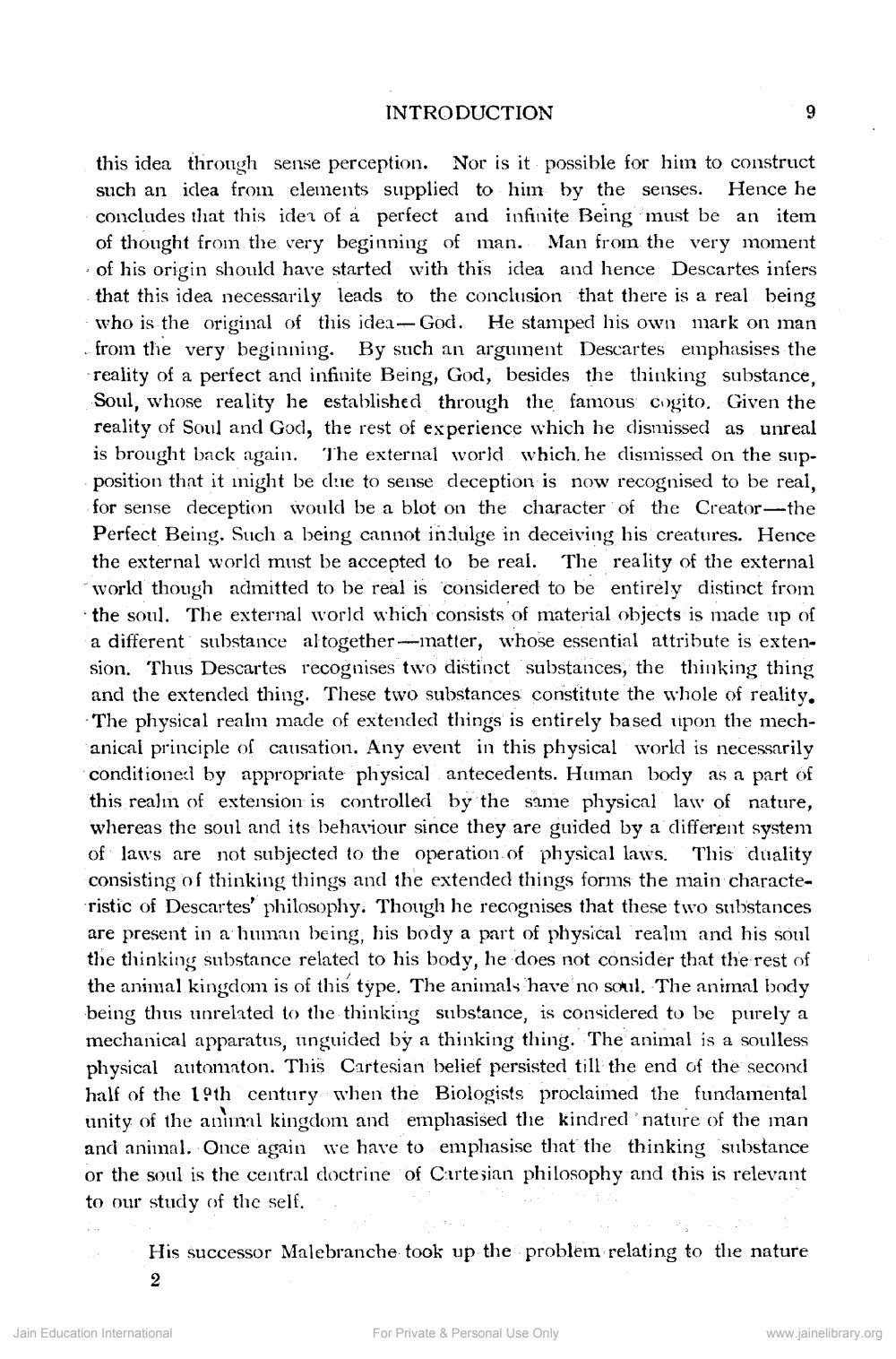________________
INTRODUCTION
this idea through sense perception. Nor is it possible for him to construct such an idea from elements supplied to him by the senses. Hence he concludes that this idea of a perfect and infinite Being must be an item of thought from the very beginning of man. Man from the very moment of his origin should have started with this idea and hence Descartes infers that this idea necessarily leads to the conclusion that there is a real being who is the original of this idea- God. He stamped his own mark on man from the very beginning. By such an argument Descartes emphasises the reality of a perfect and infinite Being, God, besides the thinking substance, Soul, whose reality he established through the famous cogito. Given the reality of Soul and God, the rest of experience which he dismissed as unreal is brought back again. The external world which, he dismissed on the supposition that it might be due to sense deception is now recognised to be real, for sense deception would be a blot on the character of the Creator-the Perfect Being. Such a being cannot indulge in deceiving his creatures. Hence the external world must be accepted to be real. The reality of the external world though admitted to be real is considered to be entirely distinct from the soul. The external world which consists of material objects is made up of a different substance altogether-matter, whose essential attribute is extension. Thus Descartes recognises two distinct substances, the thinking thing and the extended thing. These two substances constitute the whole of reality. The physical realm made of extended things is entirely based upon the mechanical principle of causation. Any event in this physical world is necessarily conditioned by appropriate physical antecedents. Human body as a part of this realm of extension is controlled by the same physical law of nature, whereas the soul and its behaviour since they are guided by a different system of laws are not subjected to the operation of physical laws. This duality consisting of thinking things and the extended things forms the main characteristic of Descartes' philosophy. Though he recognises that these two substances are present in a human being, his body a part of physical realm and his soul the thinking substance related to his body, he does not consider that the rest of the animal kingdom is of this type. The animals have no soul. The animal body being thus unrelated to the thinking substance, is considered to be purely a mechanical apparatus, unguided by a thinking thing. The animal is a soulless physical automaton. This Cartesian belief persisted till the end of the second half of the 19th century when the Biologists proclaimed the fundamental unity of the animal kingdom and emphasised the kindred nature of the man and animal. Once again we have to emphasise that the thinking substance or the soul is the central doctrine of Cartesian philosophy and this is relevant to our study of the self.
Jain Education International
9
His successor Malebranche took up the problem relating to the nature
2
For Private & Personal Use Only
www.jainelibrary.org




